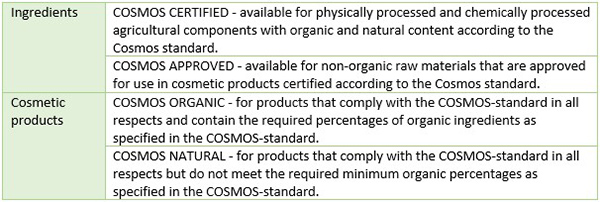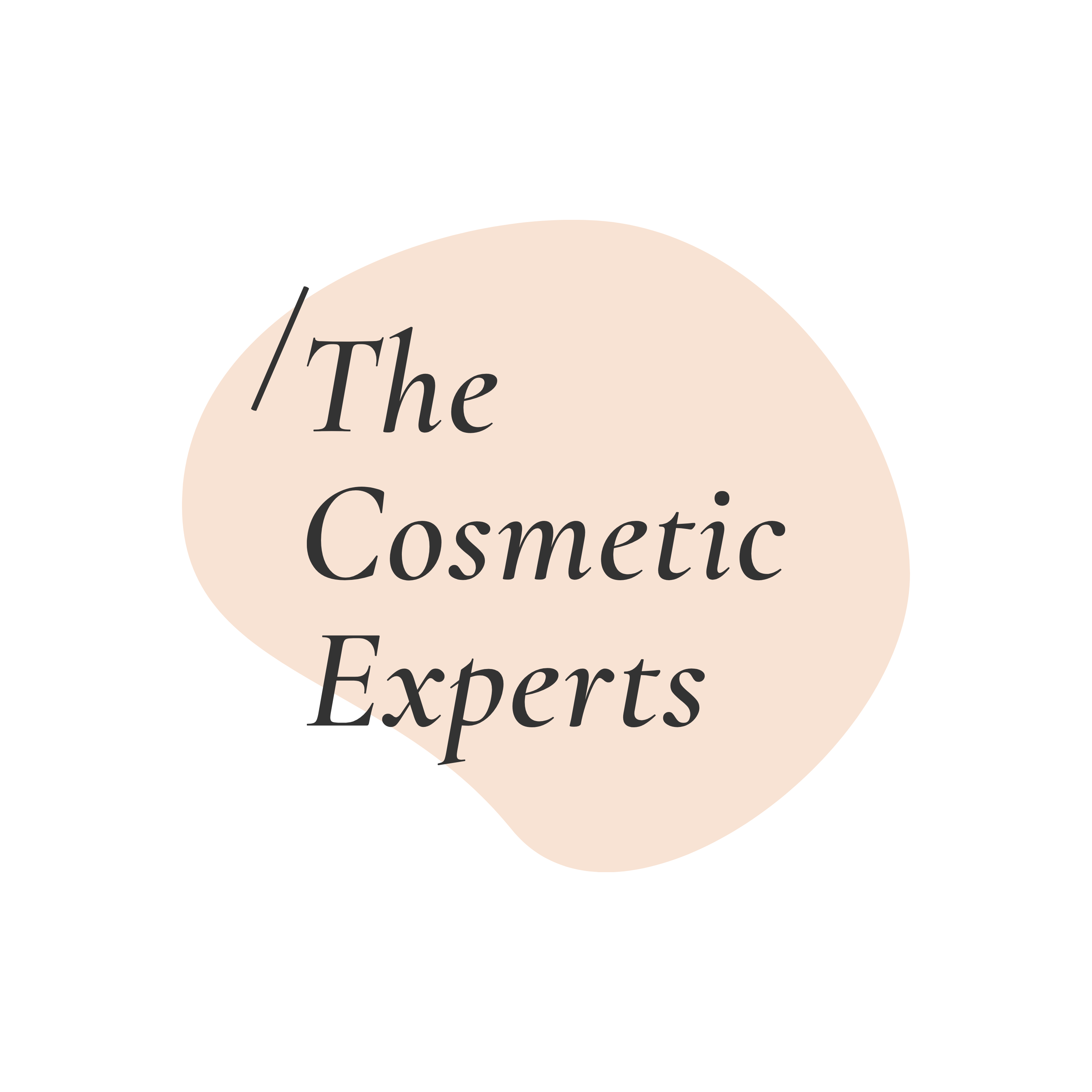Organic, natural, clean, sustainable, vegan, cruelty free are claims more and more sought by consumers who look for products that are in line with their values and conscious lifestyle.
From formula to market - what these claims means?
There is no legal definition of above terms under the EU and UK Cosmetics Regulations, and there is a risk that they are used without a clear message to the consumers. It is important to start from the fact that any claim made by a cosmetic product is regulated under the UK Cosmetics Regulation and the EU Cosmetics Regulation (Inc NI) Claims must comply with EU Regulation 655/2013 “Common Criteria for Cosmetic Claims” and be capable of substantiation.
Although certification in relation to these claims is not a legal requirement, this can be a way to communicate the message to the consumers in a more definite way. An alternative approach to help with the definition of natural and organic is also given by ISO16128 (1&2) ISO - International Organization for Standardization.
These are guidelines published by the International Organisation for Standardisation (ISO) to provide an internationally uniform definition for organic and natural products and a guidance to the industry on how to calculate and communicate on the natural content of cosmetic products. It does not set limits for a cosmetic product to be considered organic and/or natural.
The clarity of the claims must be set up as the first step to the formulation development process. Either if the brand wishes to follow ISO guidelines for a natural/organic definition or if they prefer to take the step of certifying the products against a specific standard, the formulation route will need to follow accordingly. The choice of the ingredients, their level of use, the supporting data from raw materials suppliers are key for formulations to comply to the chosen guidelines and/or desired brands’ policy.
We have listed some of the most recognized standards available.
Certifying Standards
1. COSMOS
This is one of the most widely used certification of natural cosmetics and organic cosmetics in the world.
The Cosmos standard is managed by the international independent association and its founding members: BDIH - Germany, Cosmebio - France, Ecocert - France, ICEA - Italy and the Soil Association – UK.
Each aspect from sourcing, manufacturing to marketing and control of cosmetic products are inspected by the Certified Bodies to certify they adhere to the Cosmos standard. Then the logo can be applied to the label for the applicable standard (and certifier) which is easily recognized by consumers. The certifying body will undertake inspections to ensure the standard is met on a continuous basis.
Cosmos provides four certification types, two for ingredients and two for the finished cosmetic products:

The certification process can take few months, depending on the complexity of the product.
2. NATRUE
Natrue is an international non-profit association founded in 2007 to promote the need for an international and independently certified standard setting rigorous requirements for natural and organic cosmetic products, packaging and products’ to reassure consumers and assist producers.
With over 7,000 products certified with Natrue label worldwide, Natrue has established themselves as another international benchmark for natural and organic cosmetic products at similar level as Cosmos.
They provide two certification levels (natural or organic) for finished cosmetic products, and approval or certifications for raw materials and for formulas for third-party manufacturers who wish to sell their formulas to brand owners. To make the whole process more independent and transparent they work with a worldwide network of independent and accredited certification bodies who verify and control that only finished products and raw materials that comply with the criteria within the NATRUE Standard can carry the NATRUE Label.
3. VEGAN SOCIETY
Although there is no legal definition of a vegan cosmetic product, brands may include claims that the product does not contain any animal-derived ingredients or is "suitable for vegans". Ultimately, this means that plant-based products have no animal-derived ingredients, nor ingredients of other origins.
The Vegan Society provides a logo to communicate this claim following a check on each product application against their set criteria. According to these the development and/or manufacture of the product, and its ingredients, must not involve animals or have involved the use of any animal product, by-product or derivative, and the testing of any sort on animals conducted at the initiative of the company or on its behalf, or by parties over whom the company has effective control.
4. LEAPING BUNNY
Animal testing of cosmetic products and cosmetic ingredients and selling cosmetic products tested on animals or containing ingredients tested on animals have been banned in the UK and EU. The term “cruelty-free” is not regulated by any governmental entity though and the Common criteria for cosmetic claims prohibit any claims that states compliance with legal requirements. However, statements or logos relating to a company's animal testing policy appear to remain acceptable.
The Leaping Bunny was founded by an international network of animal welfare organisations in 1996 and certifies companies in the United States, Canada, UK and the European Union.
It is run by Coalition for Consumer Information on Cosmetics (CCIC) which deals with companies based in the US and Canada and Cruelty Free International (CFI), which, while based in the UK, handles all other brands with headquarters outside the US and Canada. Additionally, in 2021, Choose Cruelty Free (CCF), an Australian cruelty-free certification program, merged with Cruelty Free International.
Leaping Bunny say they go beyond the most testing bans in place as according to these bans some cosmetics companies that are not Leaping Bunny approved may still test their products or ingredients on animals. This is because of certain legislative loopholes, like for example when animal tests are conducted to comply with a requirement of a foreign regulatory authority, such as China, or when chemicals are required to have animal tested under the Registration, Evaluation, Authorisation and Restriction of Chemicals (REACH) regulation.
The certified logo of the Leaping Bunny is accredited to companies once established that they meet a list of cruelty-free standards, sign legal documents, and submit documentation to ensure compliance. This involves a declaration of product compliance by a written yearly confirmation provided to the company from its Third-Party Manufacturers and Suppliers that they have not been involved with Animal Testing for the product. The manufacturer will have gathered Declarations of Raw Material Compliance to substantiate this declaration. Ongoing audits are included.
5. PETA
PETA offers two certifications — one for just cruelty-free status, and one for cruelty-free and vegan status. A company’s entire product line must be vegan to qualify for PETA’s vegan designation. PETA defines ‘vegan’ as free of animal-derived ingredients.
To be certified, companies must sign PETA's short questionnaire and submit a statement of assurance. With this they commit that they do not conduct/commission any animal testing on any of their products at any phase of development, for both ingredients and final products and that they will not do so in the future.
PETA does not require brands to submit documents from their suppliers as proof of compliance, but they request Companies have agreements in place with their suppliers guaranteeing that they will refrain from conducting, commissioning, paying for, or allowing tests on animals for the ingredients purchased by the company.
PETA does not conduct independent audits and the legitimacy of its standards depends on the honesty and accuracy of written statements made by the brand.
6. Clean beauty
It is a movement that encourages accountability and transparency in ingredients and business practices. Brands want to inform consumers about the source and use of ingredients, the way the products are manufactured including efforts to reduce environmental impact or the way they commit to guarantee worker welfare.
There is no legal definition for this claim and clearer guidance and regulation are still needed to support the industry’s transition to a cleaner process.
A first step to avoid misleading claims is to define a clear brand policy of what "clean" means to the company. There is potential for “Green washing” and this must be avoided by communication of the policy in a clear manner.
Some brands choose to support their commitment to the environment by adhering to standards set up by beauty retailers. Sephora Clean Beauty and Credo Clean standard have set a way towards this.
Credo is a beauty retailer and their “Clean Standard™ debuted in 2018 founded by two beauty industry veterans. The Credo Clean Standard™ calls on brands to be transparent about their product safety, source, ethical and sustainability concerns. The standard has drawn up a list of 2700 ingredients (dirty list) that companies must avoid for reasons of product safety and sustainability.
Sephora is another example of a beauty retailer that has set up their own standard for customers looking to fulfil their request of a beauty which is safe for them and the environment.
Their Clean at Sephora label closely examines ingredients in a product starting form a list of restricted ingredients called “Formulated Without” by Sephora’s program.
In addition, their Clean + Planet Positive label consider also responsible packaging, climate commitment, sustainable sourcing practices, and environmental giving.
How we can help
It is not easy to decide on a certification and each of them have advantages and disadvantages. We at The Cosmetic Experts are happy to guide you through and advise how to best meet your vision and support your claims and develop your formulations accordingly.
Contact us at info@thecosmeticexperts.co.uk if you are looking to develop certified formulations or need help on how to substantiate such claims.

